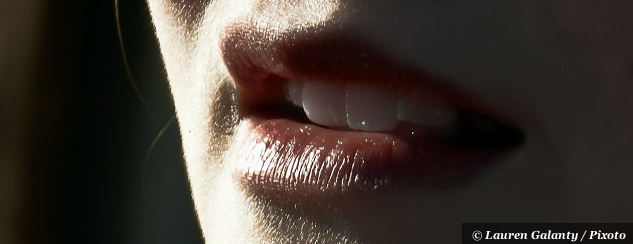The disaster of having a canker sore is so disproportionate to its tiny size, that you must experience it to believe it.
But, since you are reading this article, I will make the assumption that you are of the club of canker-sore-sufferers and I won’t feel so compelled to explain myself.
I am nursing my third canker sore in the span of a month. It’s like some strange implementation of medieval torture. Indescribably painful, slow to heal, and in my mouth. Of all places to have an injury, the mouth is about as vulnerable a place as one could come up with (aside, I suppose, from the genitals).
I tell Jesse at least once a day that I still have canker sores which renders the genuine empathetic response of, “Oh honey. Canker sores are a bitch!” (He is also a sufferer.)
I made the mistake of telling someone who was outside of the obvious circle of sufferers and he replied, “There are people who are much more miserable than you out there.” That shut me right up.
The telling of this information is less for pity (though that doesn’t hurt) than as a disclaimer for why I am not smiling and talking and why I must eat with my mouth completely open, a napkin curtaining the mouthful of bit-up food.
I have not given my husband a decent kiss or enjoyed a glass of red wine since early March. (That is not to say I haven’t had a glass of red wine, I just haven’t enjoyed it.) I haven’t enjoyed anything I’ve eaten in weeks. The fear that I am eating something wrong and canker-inducing trumps the ability to taste good things. The articles say no alcohol, no chocolate, no citrus fruits, no tomatoes. If you are trying to reduce acidity in the body—which is recommended—no berries, no processed foods, no breads, no caffeine.
Ugh.
So, in addition to having gaping, open sores in the mouth for an average of two weeks at a time, one also goes insane trying to do something about it.
I digress. I sat down to write this article not for pity or as a disclaimer because, alas, you cannot see if I am grumpily eating with the manners of a canine. I wrote it because I’ve just been gathering so much information lately on this topic, that I thought I’d share some of my hard-earned knowledge.
I have pages in my journal dedicated to lists of what I should be doing to to prevent/heal my canker sores. I can often stick to a regimen for a few days, but then get pissed about my application of ambiguous rigidity and offer the little mouth-bastards a flick-off by eating a dinner of dark chocolate and Kombucha. The fact that there is a ridiculous amount of information out there about healing canker sores, and that nothing actually seems to work, makes it very difficult to commit to any one thing.
But I will share what has stuck out for me, anyway.
To clarify, cold sores and canker sores are very different beasts. Cold sores, also called a fever blister or herpes simplex type 1, are groups of painful, fluid-filled blisters. Unlike canker sores, cold sores are caused by a virus and are extremely contagious. Also, cold sores typically appear outside the mouth—usually under the nose, around the lips, or under the chin, while canker sores occur inside the mouth and are open, not filled with fluid. (Ewe, sorry. Had to get the clarification out of the way.)
1. Take care not to eat too much acid-producing food.
To my surprise, the list of foods that are acid-producing are not always the ones that are acidy to the taste.
For me, I just added a ton of alkaline foods to balance things out and cut down on the dark chocolate and wine. Kind of.
This chart was incredibly illuminating.
2. Enhance the immune system.
The following are recommended to treat canker sores: Zinc (30 mg a day), Echinacea (200 mg, three times per day), Vitamin C (500mg, three times a day), L-Lysine (500 mg, three times per day). I don’t think I would do it all at once, but pick a few. I do echinacea and zinc regularly.
3. Make sure there isn’t another condition at work.
Other conditions can also cause mouth ulcers that resemble canker sores, including iron deficiency anemia, pernicious (vitamin B12 deficiency), folic acid deficiency, gluten intolerance, celiac disease and Crohn’s disease.
4. Quell the immediate pain.
For fast relief, you can find over-the-counter antiseptic creams, lozenges and mouthwashes at your local pharmacy to help relieve canker sore pain. Some examples include products such as Orabase with Benzocaine, which covers the surface of the sore like an “oral bandage.” Keeping it coated will help prevent it from getting infected. Products with xylocaine, a local anesthetic, can also dull the pain.
Also, putting ice on the sore has an amazing numbing effect.
5. Use a rinse:
A little aloe juice from the juicy inner portion of the leaf rinsed over the canker several times daily is very soothing.
You can also combine 1 teaspoon salt, 1 teaspoon baking soda and 2 ounces hydrogen peroxide to reduce bacteria. Mix and rinse your mouth with it four times daily. If the taste is too strong, or the tingle uncomfortable, dilute with 2 ounces water. You can also just rinse your mouth with lukewarm salt water.
6. Make your own remedy.
Mix together equal amounts of Milk of Magnesia or Kaopectate and Benylin or Benadryl. Milk of Magnesia and Kaopectate both contain ingredients that coat wet tissues, such as those in the mouth. Benylin and Benadryl contain ingredients that act as mild topical anesthetics and antihistamines (which reduce inflammation).
Apply the mixture to the canker sore using a cotton swab. Be careful not to swallow the stuff; you could end up anesthetizing (numbing) the reflex that keeps the windpipe closed when you swallow.
7. Watch your stress level.
Canker sores, to me, are often tiny—but loud—signals of stress that can be internal and not obvious. (Although, the most serious bout I have ever had—four sores in the span of two months—came right after Opal was born. The stress there was pretty obvious.)
For the record, my third canker sore is shrinking up much quicker than the first two did. I believe this is a result of amping up my immune boosters like crazy. So, out of everything on this list, immune boosting would be the one I would recommend the most.
However, having a reason to examine my stress level and permission to do whatever is necessary to reduce stress (yes, honey, buying these green shoes did reduce my stress level and thus, is good for my canker sores and my picture of health as a whole) is always welcome.
**
References:
Source for acid-alkaline chart.
Love elephant and want to go steady?
Sign up for our (curated) daily and weekly newsletters!
Editor: Renée Picard
Image: Pixoto













Read 4 comments and reply